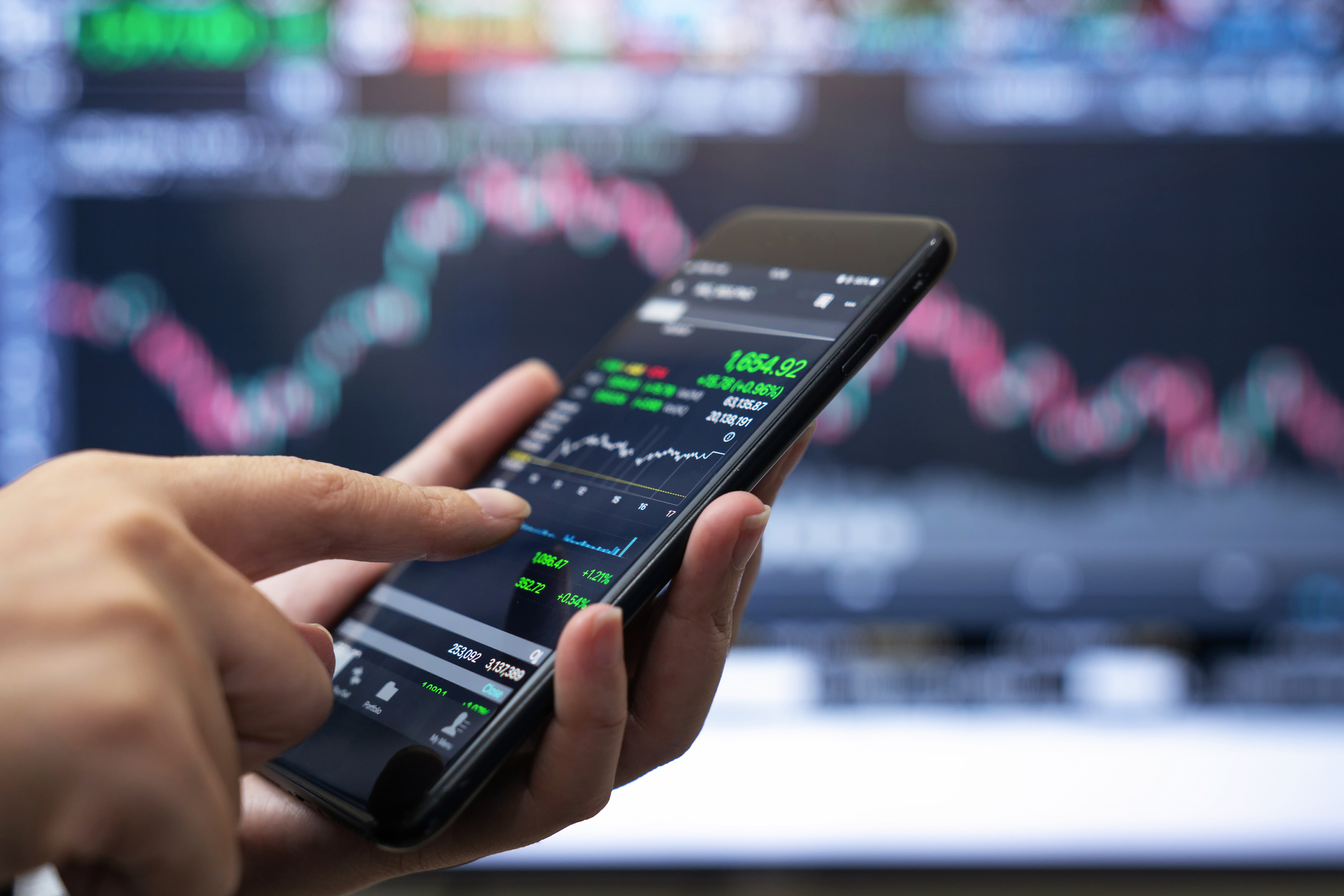Daily gold report: Wednesday 11th July
Gold traded $2 above Tuesday's US close in the first-half of London trade on Wednesday, approaching lunchtime just shy of $666 per ounce...
Get the latest financial news, insights and expert analysis from our award-winning MoneyWeek team, to help you understand what really matters when it comes to your finances.
You are now subscribed
Your newsletter sign-up was successful
Want to add more newsletters?

Twice daily
MoneyWeek
Get the latest financial news, insights and expert analysis from our award-winning MoneyWeek team, to help you understand what really matters when it comes to your finances.

Four times a week
Look After My Bills
Sign up to our free money-saving newsletter, filled with the latest news and expert advice to help you find the best tips and deals for managing your bills. Start saving today!
Gold traded $2 above Tuesday's US close in the first-half of London trade on Wednesday, approaching lunchtime just shy of $666 per ounce.
Aside from growing demand for investment gold, 'additional buying in gold also comes from the strong support around the $650 level,' said Pradeep Unni at Vision Commodity Services in Dubai to Reuters earlier.
'Every time gold slips below $650, physical demand [for jewelry fabrication] is seen to creep in. This has been a trend for the last four months.'
MoneyWeek
Subscribe to MoneyWeek today and get your first six magazine issues absolutely FREE

Sign up to Money Morning
Don't miss the latest investment and personal finances news, market analysis, plus money-saving tips with our free twice-daily newsletter
Don't miss the latest investment and personal finances news, market analysis, plus money-saving tips with our free twice-daily newsletter
'The future tone is strong,' agrees Yukuji Sonoda, precious metals analyst at Daiichi in Tokyo. '$650 is the bottom price.'
This morning's move in gold prices came even as global stock markets sold off breaking the pattern of gold moving in lock-step with equities seen so far in 2007, and following on from yesterday's 148-point loss in the Dow Jones index on Wall Street.
After Home Depot, the world's largest home-improvement store, forecast an 18% drop in earnings per share, Standard & Poor's warned it may cut the credit ratings awarded to $12 billion of subprime mortgage-backed bonds. Just before the US close, Moody's Investors Service downgraded its ratings on $5.2 billion in mortgage-related debt.
The slump in US consumer spending and house prices hurt the Nikkei in Tokyo today. The index lost 1.1%, led lower by insurance and export stocks, as the Japanese Yen rose on the currency markets.
'It boils down to a fall in US stocks and the stronger Yen,' reckons Tsuyoshi Nomaguchi, a strategist at Daiwa. 'The market is now watching for a rebound in the US market because that would also bring back the Dollar.'
In London, the FTSE100 index stood 0.6% lower by late morning. 'It has the taste of what we saw in 1998 with the bond crisis,' according to Tom Hougaard, chief market strategist at margin-brokers City Index. 'With these subprime mortgage lenders, we are going to be in for a volatile summer.'
Government bond prices continued to rise in anticipation that the US Federal Reserve will act quickly to cut Dollar interest rates, bailing out the subprime mortgage sector. The yield on 10-year US Treasury bonds dipped to 4.99%, its lowest level in a week and 19 points lower since Monday. Ten-year German bund yields dropped 5 points to 4.53%.
Energy prices continued to rise, however, even as interest rates fell in the markets. Brent crude oil broke above $76 per barrel late on Tuesday, a new 11-month high, as US gasoline prices rose on news of forced refinery shutdowns in Texas, Kansa and now Indiana.
Speculative long positions in crude oil futures are now at an all-time high, according to Barclays Capital. Net-long positions rose by 43% in the week ending July 3rd.
Back in the gold market, the initial move in Dollar prices today was matched by the Sterling price of gold, up 0.5% overnight. But for British investors gold then pulled back to reach lunchtime near yesterday's lows below £327.50 per ounce as the Pound rose to a fresh quarter-century high against the US Dollar above $2.0300.
French and German investors found the Euro price of gold trading €3 per ounce below the week's high at €483.50 as the Euro rose above $1.3770. The Dax index of German stocks, heavily dependent on manufacturing exports, dropped 1.8% to hit a three-week low despite assurances from the Jrgen Stark, an executive member of the European Central Bank, that the Euro's current strength reflects strong economic growth. It remains within a range seen before the launch of the Euro as a convertible currency in 1999, he said.
Today's fresh slump in the Dollar followed a long, dry speech by Ben Bernanke, chairman of the US Federal Reserve, last night. Rather than addressing the fact that 18 of the world's top 20 central banks are now presiding over double-digit growth in their money supply and making no mention of the collapse in subprime mortgage-backed assets, Dr.Bernanke spoke about anchoring 'inflation expectations'. He also noted how his predecessor, Paul Volcker, restrained the US public's long-term inflation expectations in turn tempering the actual rate of inflation by curbing wage demands and speculation by raising the Fed's rate of interest.
With bond yields now falling as energy prices increase yet again, might 'strong medicine' be required? A cut in Fed interest rates now would be sure to reduce the real rate of interest paid over and above inflation a situation that typically leads investors across the world to buy gold in defense.
Adrian Ash is editor of Gold News and head of research at www.BullionVault.com, the fastest growing gold bullion service online
Get the latest financial news, insights and expert analysis from our award-winning MoneyWeek team, to help you understand what really matters when it comes to your finances.
Adrian has written all things gold related from if it’s worth buying, what the real price of gold should be and what’s the point of gold for MoneyWeek. He has also written for other leading money titles on his gold expertise including Business Insider, Forbes, City A.M, Yahoo Finance and What Investment Magazine. Now Adrian is head of the research desk at BullionVault, a physical market for gold and silver for private investors online.
-
 Should you buy an active ETF?
Should you buy an active ETF?ETFs are often mischaracterised as passive products, but they can be a convenient way to add active management to your portfolio
-
 Power up your pension before 5 April – easy ways to save before the tax year end
Power up your pension before 5 April – easy ways to save before the tax year endWith the end of the tax year looming, pension savers currently have a window to review and maximise what’s going into their retirement funds – we look at how
-
 How a dovish Federal Reserve could affect you
How a dovish Federal Reserve could affect youTrump’s pick for the US Federal Reserve is not so much of a yes-man as his rival, but interest rates will still come down quickly, says Cris Sholto Heaton
-
 'Investors should brace for Trump’s great inflation'
'Investors should brace for Trump’s great inflation'Opinion Donald Trump's actions against Federal Reserve chair Jerome Powell will likely stoke rising prices. Investors should prepare for the worst, says Matthew Lynn
-
 The challenge with currency hedging
The challenge with currency hedgingA weaker dollar will make currency hedges more appealing, but volatile rates may complicate the results
-
 Can Donald Trump fire Jay Powell – and what do his threats mean for investors?
Can Donald Trump fire Jay Powell – and what do his threats mean for investors?Donald Trump has been vocal in his criticism of Jerome "Jay" Powell, chairman of the Federal Reserve. What do his threats to fire him mean for markets and investors?
-
 Freetrade’s new easy-access funds aim to beat top savings rates
Freetrade’s new easy-access funds aim to beat top savings ratesFreetrade has launched an easy-access exchange traded fund (ETF) range - here’s how the ETFs work and how they compare to the savings market
-
 Go for value stocks to insure your portfolio against shocks, says James Montier
Go for value stocks to insure your portfolio against shocks, says James MontierInterview James Montier, at investment management group GMO, discusses value stocks and slow-burn Minsky moments with MoneyWeek.
-
 Where do we go from here?
Where do we go from here?Features A new series of interviews from MoneyWeek
-
 As China reopens, why pick an income strategy?
As China reopens, why pick an income strategy?Advertisement Feature Yoojeong Oh, Investment Manager, abrdn Asian Income Fund Limited